‘Working Class Hero’: John Lennon and Yoko Ono On The Classic Song
Excerpted from ‘John Lennon/Plastic Ono Band – The Ultimate Collection,’ John and Yoko discuss the classic song.
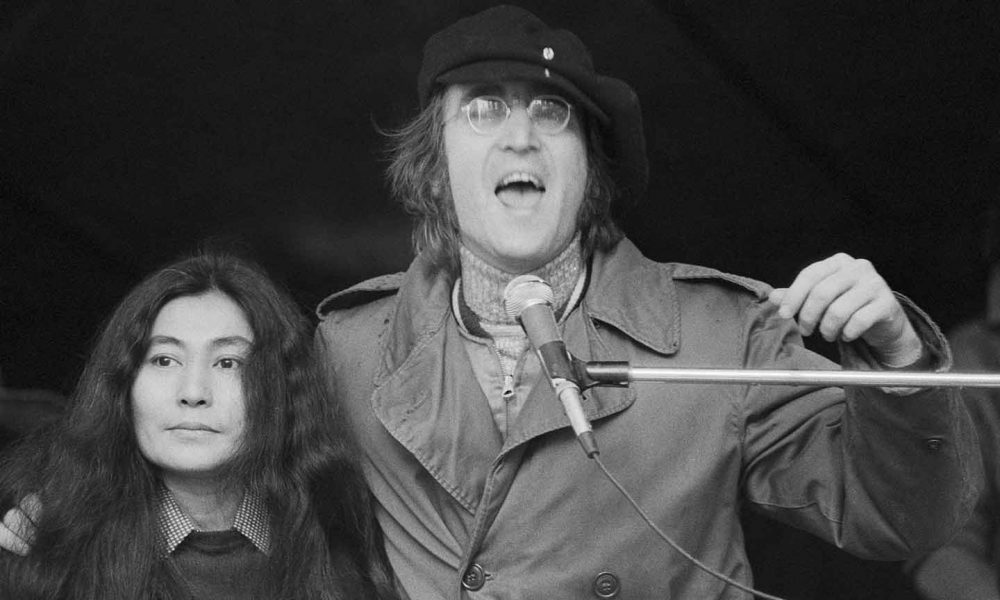
Excerpted from John Lennon/Plastic Ono Band – The Ultimate Collection, what follows is John Lennon and Yoko Ono’s words on the track “Working Class Hero.”
John Lennon: I like “Working Class Hero” – as a song, or a poem or whatever it is. I think its concept is revolutionary. It’s for the people like me who are working class, who are supposed to be processed into the middle classes, or into the machinery. It’s my experience, and I hope it’s just a warning to people. The thing about the song that nobody ever got right was that it was supposed to be sardonic. It had nothing to do with socialism, it had to do with: if you want to go through that trip, you’ll get up to where I am, and this is what you’ll be – some guy whining on a record, all right? If you want to do it, do it. I’m not recommending it, I’m just saying it’s something to be, like a lawyer.
Yoko Ono: The Beatles were just saying to people, “It’s gonna be OK” and then suddenly John comes out with this Plastic Ono Band album – “Working Class Hero” and “God” and all that, saying, “It’s not OK. There are these problems.” Obviously that makes him less popular because people don’t want to know about that. People want somebody to always tell them it’s OK. And so it’s gonna be a little bit less popular, but it shouldn’t be if the world gets more mature. They should understand that that’s more important somehow.
John Lennon: I’ve been successful as an artist and have been happy and unhappy, and I’ve been unknown in Liverpool or Hamburg and been happy and unhappy. But what Yoko’s taught me is what real success is – the success of my personality, the success of my relationship with her, my relationship with our child, my relationship with the world – and to be happy when I wake up. It has nothing to do with rock machinery or not rock machinery.
I put “fucking” in [the song] because it does fit. I didn’t even realize there were two in, until somebody pointed it out. And actually when I sang it, I missed a bloody verse. I had to edit it in. But you do say “fucking crazy” don’t you? That’s how I speak. I was very near to it many times in the past, but I would deliberately not put it in, which is the real hypocrisy, the real stupidity. I would deliberately not say things, because it might upset somebody, or whatever I was frightened of.
People like me are aware of their so-called genius at ten, eight, nine…. I always wondered, “Why has nobody discovered me?” In school, didn’t they see that I’m cleverer than anybody in this school? That the teachers are stupid, too? That all they had was information that I didn’t need. I got lost at school.
A couple of teachers would notice me, encourage me to be something or other, to draw or to paint – express myself. But most of the time they were trying to beat me into being a dentist or a teacher. And then the fans tried to beat me into being a Beatle or an Engelbert Humperdinck, and the critics tried to beat me into being Paul McCartney. The establishment irritates you – pulls your beard, flicks your face – to make you fight because once they’ve got you violent, they know how to handle you. The only thing they don’t know how to handle is non-violence and humor.
What am I supposed to be, some kind of martyr that’s not supposed to be rich? Did they criticize me when I was a Beatle for making money? In retrospect, a lot of money came our way, and I spent a lot of it, I sure as hell had a lot of fun with it. Through ignorance I lost a lot of it and gave a lot of it away through maybe a misplaced charitable heart. So why are they suddenly attacking me for making money now? Because we were associated with radical causes, feminism and the anti-war movement? To be anti-war you have to be poor? There’s many a socialist in the House of Lords, what are they talking about? I mean, if they want a poor man, they can follow Jesus. And he’s not only poor, he’s dead!
I just like TV. To me, it replaced the fireplace when I was a child. They took the fire away, and they put a TV in instead, and I got hooked on it. Yoko was an intellectual, and she thought TV was something you didn’t bother with. I’ve met a lot of people like that. But TV is what everybody in the world watches, and TV is what everyone talks about the next day at work. And if you want to know what everybody, twenty million Americans or twenty million Britons are talking about on Saturday night, it’s what they saw on Friday night on TV. Well, it’s nice to know what other people are thinking.
TV is a window on the world. Whatever it is, that’s that image of ourselves that we’re portraying. I was a great one as a kid for standing and just looking out of windows for hours and hours and hours. The TV does that for me, except the view changes immensely. One minute it’s The Saint, the next minute it’s a rocket in Vietnam, and it’s very surreal. I leave it on whether I have the sound on or not.
We went to America a few times and Epstein always tried to waffle on at us about saying nothing about Vietnam. So there came a time when George and I said “Listen, when they ask next time, we’re going to say that we don’t like that war and we think they should get right out.”
That’s what we did. Up to then, there was this unspoken policy of not answering delicate questions, though I always read the papers, you know, the political bits. The continual awareness of what was going on made me feel ashamed I wasn’t saying anything. I burst out because I could no longer play that game any more, it was just too much for me. Of course, going to America increased the build up on me, especially as the war was going on there.
Tokyo, 30 June 1966: Well, we think about it [Vietnam] every day, and we don’t agree with it and we think it’s wrong. That’s how much interest we take. That’s all we can do about it… and say that we don’t like it.
Toronto, 17 August, 1966: I mean, we all just don’t agree with war for any reason whatsoever. There’s no reason on earth why anybody should kill anybody else. Somebody would shoot us for saying it. We’re not allowed to have opinions. You might have noticed, you know?
Memphis, 19 August 1966: It seems a bit silly to be in America and for none of them to mention Vietnam as if nothing was happening. Americans always ask showbiz people what they think, and so do the British. It doesn’t matter about people not liking our records, or not liking the way we look, or what we say. They’re entitled to not like us. And we’re entitled not to have anything to do with them if we don’t want to, or not to regard them. We’ve all got our rights, you know, Harold.
New York, 22 August, 1966: We don’t like it. I’ve elaborated enough. We just don’t like it. We don’t like war. At that time this was a pretty radical thing to do, especially for the “Fab Four.” It was the first opportunity I personally took to wave the flag a bit. But you’ve got to remember that I’d always felt repressed. We were all so pressurized that there was hardly any chance of expressing ourselves, especially working at that rate, touring continually and always kept in a cocoon of myths and dreams. It’s pretty hard when you are Caesar and everyone is saying how wonderful you are and they are giving you all the goodies and the girls, it’s pretty hard to break out of that to say, “Well, I don’t want to be king, I want to be real.”
Interview with Maureen Cleave, Evening Standard, 4 March 1966: Christianity will go. It will vanish and shrink. I needn’t argue about that; I’m right and I will be proved right. We’re more popular than Jesus now; I don’t know which will go first – rock ’n’ roll or Christianity. Jesus was all right but his disciples were thick and ordinary. It’s them twisting it that ruins it for me. “The Beatles are bigger than Jesus.” That really broke the scene. I nearly got shot in America for that. The Ku Klux Klan were burning Beatles records and I was held up as a Satanist. It was a big trauma for all the kids that were following us.
Chicago Press Conference, 11 August 1966: If I’d have said, “television is more popular than Jesus,” I might have got away with it. Originally, I was pointing out that fact in reference to England – that we meant more to kids than Jesus did, or religion, at that time. I wasn’t knocking it or putting it down, I was just saying it as a fact. And it’s sort of… it is true, especially more for England than here. I’m not saying that we’re better, or greater, or comparing us with Jesus Christ as a person or God as a thing or whatever it is, you know. I just said what I said and it was wrong, or was taken wrong. And now it’s all this.
In a way, we’d turned out to be a Trojan Horse. The Fab Four moved right to the top and then sang about drugs and sex, and then I got more and more into the heavy stuff and that’s when they started dropping us. There you are up on the stage like an Aunt Sally waiting to have things thrown at you. It’s like always putting yourself on trial to see if you’re good enough for Mummy and Daddy. You know, “Now will you love me if I stand on my head and fart and play guitar and dance and blow balloons and get an MBE and sing ‘She Loves You’? Now will you love me?” [laughs]
One night, on a show in the South [Memphis], somebody let off a firecracker while we were on stage. There had been threats to shoot us, the Klan were burning Beatles records outside and a lot of the crew-cut kids were joining in with them. Somebody let off a firecracker and every one of us looked at each other, because each thought it was the other that had been shot. It was that bad. The music wasn’t being heard. It was just a sort of freak show: the Beatles were the show, and the music had nothing to do with it. Then we decided, no more touring; that’s enough of that. I’m not going to put up with it. I was really too scared to walk away. I was thinking “Well, this is like the end, really.” There’s going to be a blank space in the future. That’s when I really started considering life without the Beatles – what would it be? What am I going to do? Am I going to be doing Vegas? I mean, where do you go?
John Lennon/Plastic Ono Band – The Ultimate Collection is out now.


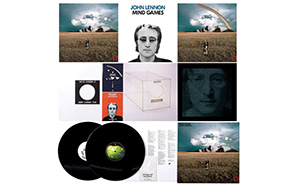
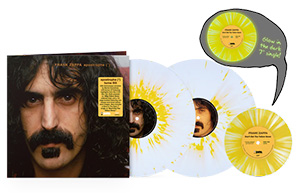

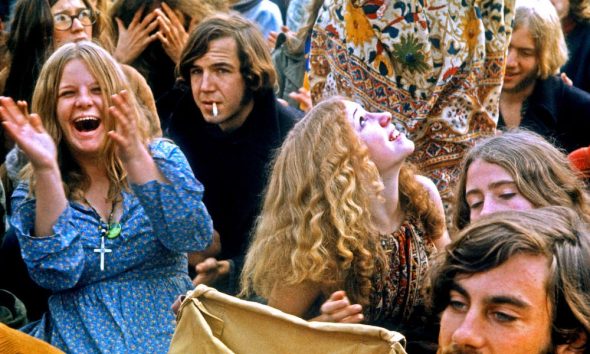
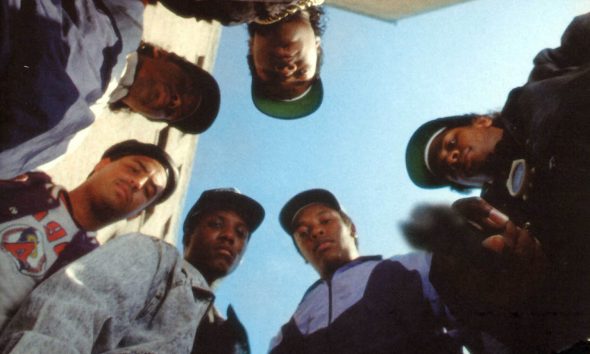

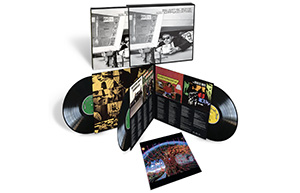

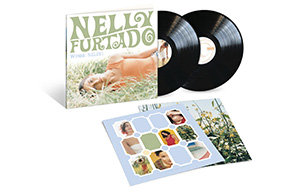
Robert Kilgannon
October 24, 2023 at 8:20 pm
I wish I was there, and in on this conversation/interview.